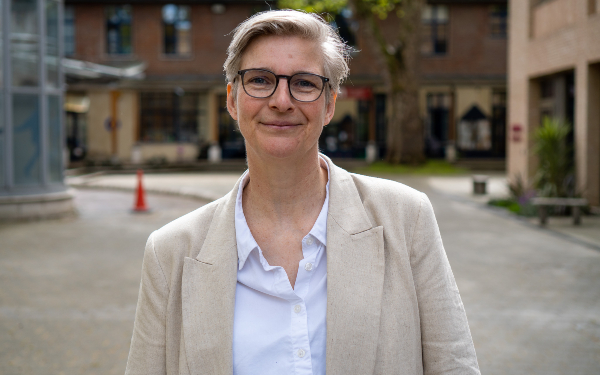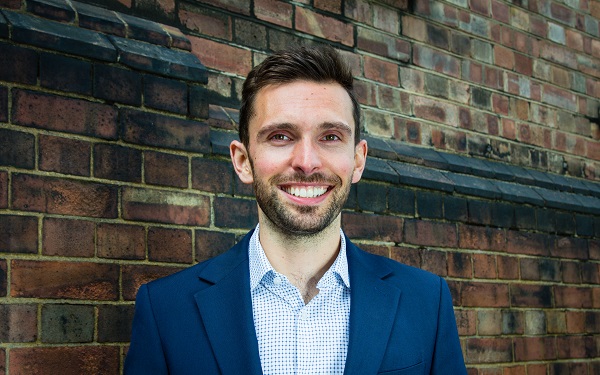
If you weren't a social worker, would you train to be one now given the current levels of bursaries?
- No (70%, 436 Votes)
- I could only afford to do a fast-track course. (21%, 130 Votes)
- Yes (10%, 60 Votes)
Total Voters: 626
Frontline will face tougher targets on qualifying and retaining social workers after winning the right to continue delivering fast-track training for aspiring children’s practitioners in England.
The organisation will also be paid by its results in retaining participants, in winning the Department for Education (DfE) contract to train three cohorts, each of up to 500 training social workers, from 2024 onwards.
It also said it will receive less funding under the new contract, which is worth £35m for Frontline, with up to £36m more provided in “pass-through costs”: bursary payments for participants and placement costs of £4,500 per local authority.
About Frontline’s new contract
Frontline, whose programme is designed to train people to work in child protection, will retain the core of the model it has operated, with DfE funding, since 2014.
Participants will still be based in small bespoke local authority teams, qualify after one year and then take a job in their host council to complete their assessed and supported year in employment (ASYE), while receiving further training from Frontline.
But against the backdrop of increased vacancy, turnover and agency worker rates across council children’s services, and based on participant, council and DfE feedback, the contract includes changes designed to train and retain more practitioners. These include:
- Boosting the cohort size from a target of 450 to a maximum of 500, enabled by increasing the standard size of the units that social workers train within from four to five, each headed by a case-holding consultant social worker (CSW). The units will be renamed ‘learning and practice hubs’.
- Increasing the number of programme starters expected to qualify as social workers and the percentage of qualifiers expected to complete their ASYE year (see table below).
- Introducing a payment by results element to the contract, with the DfE giving Frontline ‘output payments’ for each participant who meets a series of milestones. These are related to staying on the programme, qualifying, completing the ASYE and, should they wish, undertaking Frontline’s master’s in advanced relationship-based practice.
- Delivering the programme over three years, rather than two, with the master’s moved from the second to third years to avoid the pressure of participants completing it alongside their ASYE.
- Giving participants access to support in year two from the integrated learning and practice hub and CSW.
- Replacing the five-week summer institute, designed to provide participants with a grounding in social work prior to placement, with a readiness to practise stage, which will include a mix of online and in-person learning and has a much reduced residential component. This follows feedback from participants that the residential – currently three weeks, but previously five – was difficult to balance with family life.
Tougher targets
| Contract for 2020-23 cohorts | Contract for 2024-26 cohorts | |
| Cohort size | 450 | Up to 500 |
| Qualification target | 85% of participants qualify and start ASYE | 450 (90% of maximum number of participants) |
| Retention target | 85% of those who start ASYE complete it | 90% of qualifiers complete ASYE |
The new contract expects Frontline to have 450 social workers qualify per cohort, 90% of the maximum cohort size. This is above the 85% target it is currently measured against, but in line with its performance in recent years.
A cohort of 500 is above the record 463 it managed in 2020 and significantly higher than the just over 400 it placed in local authorities in 2022.
It has not confirmed the figures for the forthcoming 2023 cohort yet, but chief executive Mary Jackson told Community Care it had received record numbers of applications this year, about 6,200, or 13.8 per place, compared with 10 previously.
“A few things feed into that,” she said. “We’ve tried all sorts of digital marketing, we’ve done quite a lot of work on whom we approach but we’ve also been much more localised.”
This has meant that over 90% of successful applicants have got their first choice of local authority placement, she added.
Tackling under-representation
The DfE has also targeted Frontline with tackling the under-representation of participants with protected characteristics or from lower socio-economic groups in the 2025 and 2026 cohorts, against 2024 numbers.
The charity has sought to improve uptake from men and black and minority ethnic social workers in particular, including through its current ‘This is the Work’ campaign, which is designed to tackle myths about social work.
The proportion of black and minority ethnic participants has remained at about 20% in recent years, above population share (about 18%), but below representation in the children’s workforce (23%) and well below their share of the wider social work student body (35%).
Jackson said she was confident that the organisation would see an increase in representation from men and black and minority ethnic participants in the 2023 cohort.
Bursaries frozen
Recruitment to Frontline has been supported by the fact that participants’ tuition fees are paid, they are guaranteed a bursary – unlike university counterparts – and financial support is much more generous than for those qualifying through traditional routes.
University bursary recipients receive £4,862.50 a year (£5,262.50 in London) for undergraduate courses and £3,362.50 (£3,762.50 in the capital) for postgraduate training, with their annual value having declined by £1,000 to £1,500 due to a nine-year freeze.
By contrast, Frontline students receive £18,000 outside London and £20,000 within the capital during their qualifying year. However, the new contract freezes these levels – in place since 2019 – until 2026-27.
Retention target
On retention, the DfE has targeted the charity with ensuring 90% of those who qualify complete their ASYE year, above the current target of 85%.
Previous research has found that most Frontline-trained social workers left their host councils within three years, however, Jackson said its overall record on retaining practitioners within the profession was good.
She said around 80% remained in social work at four years post-qualification, with a further 10% in roles that were aligned to Frontline’s mission of “developing excellent social work practice and leadership, that can create social change for children without a safe or stable home”.
Previous research has shown that retention rates for Frontline are similar to those for fellow fast-track programme Step Up to Social Work, and no lower than university programmes, though there are not directly comparable figures.
Jackson said she was “proud and pleased” with the figures, adding: “100% [retention] is unrealistic but we’ll certainly be pushing as close to that as we possibly we can.”
Children’s social care reform
Despite its position as the incumbent provider, Jackson said that the process for winning the contract was “incredibly competitive”.
The contract award comes against the backdrop not only of significant workforce pressures but of the DfE’s planned reforms to children’s social care, themselves based on the recommendations of the Independent Review of Children’s Social Care, led by Frontline founder Josh MacAlister.

Care review lead Josh MacAlister
Among the ideas of MacAlister’s that the DfE has picked up is replacing the ASYE with a five-year early career framework for social workers, to boost knowledge and skills and improve support for practitioners at the start of their careers.
It is due to start trialling the system later this year ahead of a planned rollout in 2026, with the programme likely to be delivered by an external body or consortium.
Jackson said the ECF was “definitely on my radar” but that Frontline was currently “very focused” on delivering its new contract.
Frontline’s place in sector
Frontline has faced criticism from some in social work for its relatively generous levels of funding, fast-track model and focus on recruiting high-achieving graduates – all shared with Step Up and mental health programme Think Ahead – as well as its access to charitable funding, of which it received £2m in 2021-22.
But ten years after MacAlister founded it, Frontline’s place in English social work appears secure. Its new contract has the option of a two-year extension, and the charity has also been commissioned by the DfE, as part of a consortium, to deliver leadership training to local authority senior practitioners and managers over the next two years, through the Pathways programme.
It also recently ran its first awards, for children’s social workers and leaders, and young people with lived experience of social care.
Jackson said: “I guess I feel that anything new is going cop a bit of flak. It felt that we were doing something quite different from what was being done. We’re not new anymore. The model’s not new. And there are certain areas where we’ve evidenced that we can have a positive impact on the system.”




 Bournemouth, Christchurch and Poole
Bournemouth, Christchurch and Poole  Hampshire County Council
Hampshire County Council  Oxfordshire County Council
Oxfordshire County Council  South Gloucestershire Council
South Gloucestershire Council  Wokingham Borough Council
Wokingham Borough Council  Webinar: building a practice framework with the influence of practitioner voice
Webinar: building a practice framework with the influence of practitioner voice  ‘They don’t have to retell their story’: building long-lasting relationships with children and young people
‘They don’t have to retell their story’: building long-lasting relationships with children and young people  Podcast: returning to social work after becoming a first-time parent
Podcast: returning to social work after becoming a first-time parent  How managers are inspiring social workers to progress in their careers
How managers are inspiring social workers to progress in their careers  Workforce Insights – showcasing a selection of the sector’s top recruiters
Workforce Insights – showcasing a selection of the sector’s top recruiters 

 Facebook
Facebook X
X LinkedIn
LinkedIn Instagram
Instagram
Comments are closed.